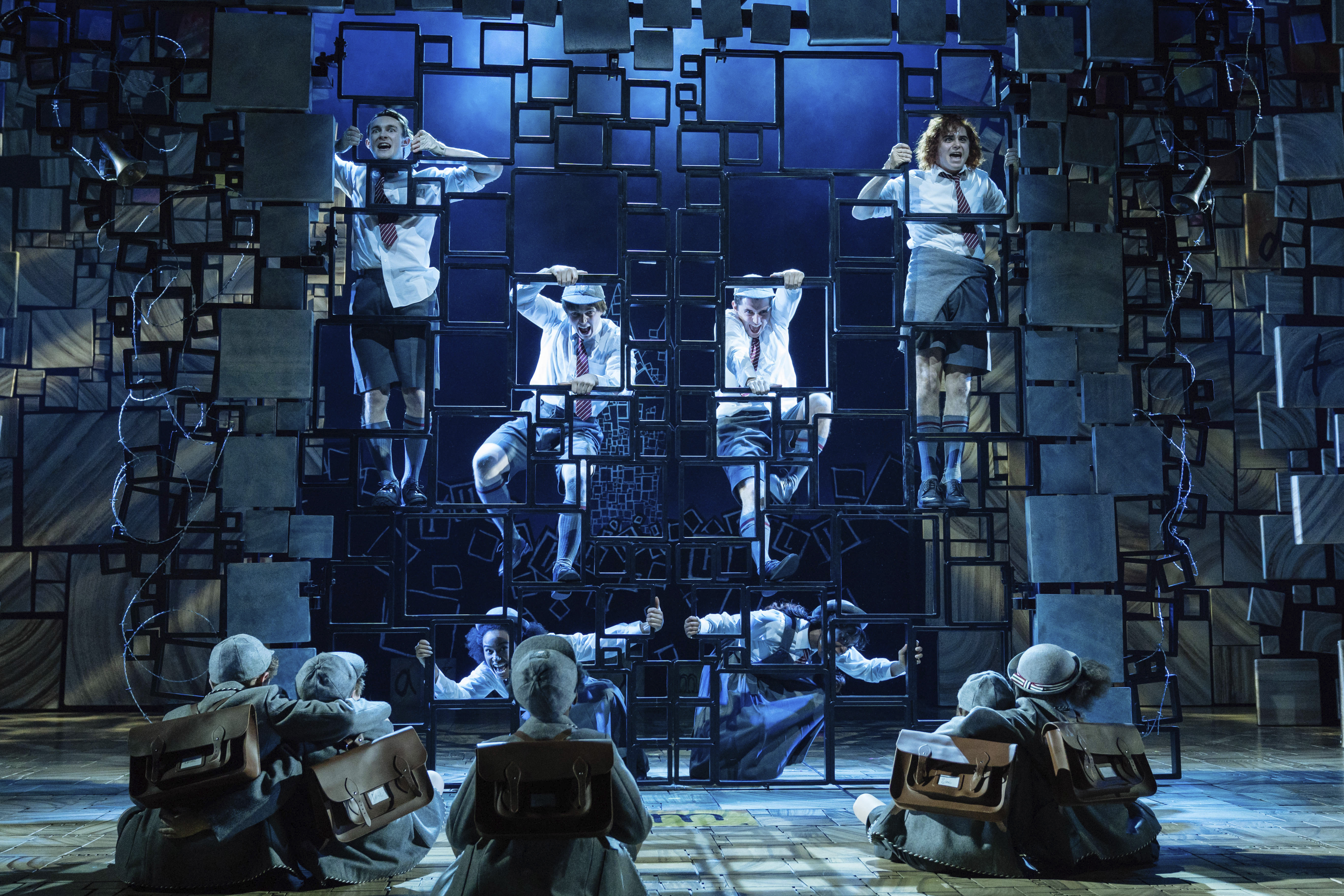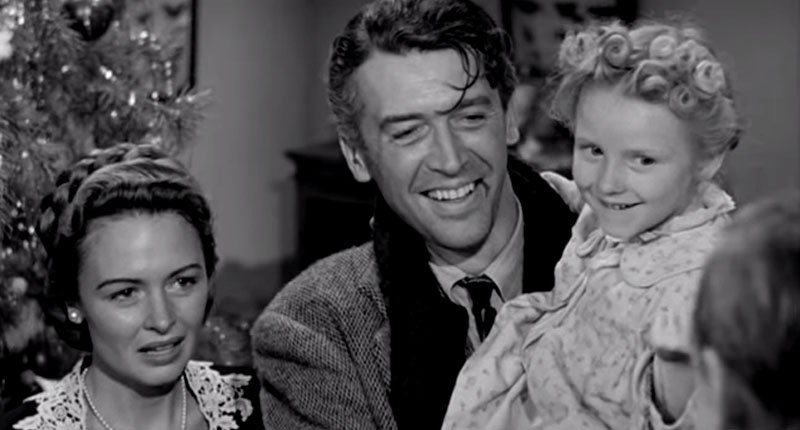Northern Soul’s Rich Jevons talks to prolific and diverse director Nikolai Foster about his hit show White Christmas at the West Yorkshire Playhouse, and forthcoming tours of Calamity Jane and Beautiful Thing.
Nikolai Foster didn’t always want to work in theatre. Growing up in North Yorkshire, as a teenager he wanted to be a jockey. But joining the school drama group gave him the confidence to cope with being badly bullied; and seeing an eclectic mix of shows at Bradford’s Alhambra Theatre led to his desire to be an actor. It was only at drama school that he decided directing was for him, so he entered the Channel 4 Theatre Directors’ Scheme at Sheffield Theatres.
Recently appointed as the artistic director of Curve Theatre, Leicester (a role he will take up in January 2015), Copenhagen-born Foster has followed the critical and sell-out success of Annie (which he innovatively re-approached with West Yorkshire Playhouse in 2011) with an original staging of Irving Berlin’s White Christmas.
The initial spark for this undertaking came some ten years ago when Foster was assistant director at the Crucible Theatre in Sheffield. “I remember a colleague talking about this wonderful film White Christmas and I’d never seen it. So I took myself off and watched the movie and thought it would work beautifully on stage.
“Then in 1999 the producers of the Broadway production that is currently running at the Dominion Theatre in London were developing the show. It’s only this year that the rights have become available to make a new production in the UK. So when the Rogers & Hammerstein people who look after Irving Berlin’s estate got in contact with us and said the rights were now available, it presented the opportunity to present a new production. This is the first original production since the Broadway production in 1999 – it’s a coup for the city of Leeds and the West Yorkshire Playhouse.”
What appealed about putting on a show for the festive season? “I have great respect for the American musical as an art form and I think musicals are a great way of bringing all kinds of people together. This story of soldiers coming back from war and finding their place in society and a purpose in life, that’s all very relevant.
 “Also, there’s the story of putting on this show in order to regenerate and revitalise the hotel that their old army general is now running in order to get his business booming again. I felt that was a good story to tell especially at this time of year because it’s a dysfunctional family in this case and it shows people coming together to put on this show.
“Also, there’s the story of putting on this show in order to regenerate and revitalise the hotel that their old army general is now running in order to get his business booming again. I felt that was a good story to tell especially at this time of year because it’s a dysfunctional family in this case and it shows people coming together to put on this show.
“They do that through their theatrical song and dance and there are parallels there in terms of Oli [Tompsett] and Darren [Day] who are both actors and very generous and kind men. So in many ways there is a crossover from the fictional work of the play to them as real performers in this day and age.”
Foster brings together a creative team led by Annie choreographer Nick Winston, Tony Award-nominated designer Matthew Wright and Tony Award-nominated orchestrator Jason Carr, whose fresh jazz-inspired orchestration of Berlin’s score – including Blue Skies, Sisters and the legendary White Christmas – will be performed by an onstage seven-piece band.
“Matthew’s design is 1950s Americana graphic art which signposts all the locations that we work through. And the orchestration is brand new with an in-house band playing the jazz-inspired Irving Berlin songs.
“Everybody thinks of Irving Berlin as being a bit old school and part of the great American songbook, so some people think of him as the grandfather, the old guy. But his songs during their day were pop songs and they were the hits everyone was listening to on the radio and in bars and clubs. So we’ve really tried to take that direction with it musically so that it feels fresh and contemporary, as it would have done when it was originally written.”
I’ve seen the show (and given it a five star review). One thing that stands out is the sheer cheek and humour of the songs, despite their classic status. “There’s a real wit and irreverence and there’s a beautiful innocence and purity in his writing. He loved vaudeville and revue-style shows and a lot of the songs he wrote were very politically charged. He had a sharp eye for capturing the zeitgeist of the moment.”
And the choreography is simply to die for. “I’ve worked with Nick on Annie and Calamity Jane and he’s extraordinary,” says Foster. “The challenge with White Christmas is that there are these huge dance breaks that go on for six or seven minutes, and you have to find a narrative to get into the dance. So we can move the story forward and explore ideas in the emotional context of the piece through these exhilarating dance breaks which are pure Broadway really and celebrate the best kind of spectacle.”
One thing you always wonder with a director as diverse as Foster is whether he has a different approach for musicals compared to, say, serious plays. “That’s an interesting question. I approach them in very much the same way. I think people think of musicals and plays being opposite things but essentially they’re both theatre that tell stories and deliver narrative in a variety of different ways. Whether it’s through dance, songs, music or spoken word or a combination of all those things, in the case of a musical.
 “So the integrity and grit and the desire to get into the underbelly of a play is the exact same objective as I have with a musical. There are technical differences like when you are in rehearsal and you have to give over your entire first week for the actors to learn the harmonies of the music and the beginnings of choreography.
“So the integrity and grit and the desire to get into the underbelly of a play is the exact same objective as I have with a musical. There are technical differences like when you are in rehearsal and you have to give over your entire first week for the actors to learn the harmonies of the music and the beginnings of choreography.
“Theatre is great because it offers us lots of different techniques and imaginative responses into how we tell stories. In some ways the musical is the most thrilling because it’s got so many different components at your disposal.”
I’ve interviewed many directors working on stage adaptations of films. The general consensus is that relying too heavily on the film devalues the new production. Foster concurs with this, while admitting that White Christmas is “a beautiful piece of work but it’s very much of its time. It’s heart-warming and creative with such humility and goodwill and it’s wonderful to have that reference in the background. But it was a piece of work created in a completely different time and different medium.”
Similarly, Foster has taken on the adaptation of Calamity Jane which tours next year. “To begin with when producer Jamie Wilson suggested it my heart sank, I thought it was an old potboiler of a thing. And actually the film is so beautiful and gracious and Doris Day is captured in that iconic and breathtakingly brilliant performance. So why on earth would you try and do it on stage?
“Having seen Ed Curtis’s 2003 production with Toyah Willcox, I thought the script was not very good and didn’t offer anything up that is better than the film. Then we were given permission to really look at the script to make it feel fresh and contemporary. Crucially we cut out all the racism, the way the indigenous Native Americans are dealt with stereotypically.
“It’s a love story and about Calamity Jane being accepted and how we view women and how women have had to assume a more masculine role to be seen as equals to their male counterparts. At the end Calamity Jane is accepted for who she is and that’s quite a powerful message today.”
Another strong message – a counterblast to contemporary homophobia – is to be found in Foster’s direction of Jonathan Harvey’s Beautiful Thing.
Foster says: “I think Jonathan Harvey’s writing is truly exquisite and it’s an amazingly honest and unsentimental portrait of life on the estate in Thamesmead in the mid-90s. The clouds are hanging over these two young boys falling in love. Beautiful Thing is a play that on the surface is quite gentle, beautiful, moving and funny. But ultimately it’s a tale of coming out and first love.”
By Rich Jevons
For more information about each of the shows, click their name: White Christmas, Calamity Jane and Beautiful Thing
Rich Jevons reviews White Christmas on The Culture Vulture blog, you can read it here














